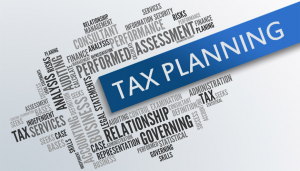
Higher Education Debt:
Should I Make Voluntary Repayments?
Higher education debts (eg. HECS/HELP debts) that are unpaid on 1 June (and have been outstanding for 11 months) are automatically increased by an indexation rate. Previously, these debts have been increased by CPI. Last year, the application of CPI as the relevant indexation rate saw HECS debts increase by 7.1% last year – the highest indexation rate ever applied.
On 6 May 2024, the Federal Government announced that the calculation of the indexation rate for HECS/HELP debts would be changed. They would be increased by either the Consumer Price Index (CPI) or the Wage Price Index (WPI) whichever is lower. They also announced that this would be backdated to 1 June 2023. The relevant WPI for June 2023 is 3.2% (less than half of the 7.1% CPI rate applied last year). Noting that this is subject to the legislation being passed.
For anyone who had a HECS/HELP debt that was indexed on 1 June 2023 at the 7.1% CPI rate, you will receive a credit on 1 June 2024 for the difference between the 7.1% CPI and the new 3.2% WPI rate*.
Prior to this announcement, we knew that the CPI rate for the June 2024 indexation of the HECS/HELP debts was 4.7%. We are now awaiting the release of the WPI figures to determine the indexation rate under WPI. The Federal Government have suggested that this will be approximately 4%*.
For anyone who has a HECS/HELP debt, it is forecasted that it will be indexed on 1 June 2024 by approximately 4%* (with a credit also applied for the reduction in the indexation rate at 1 June 2023 noted above).
Any reduction of the debt prior to this date will mean the amount of indexation will be lower (as the debt is lower). If you have an outstanding tax return that will reduce the debt, we recommend you lodge the return as soon as possible to ensure the payment from your tax return is applied.
If you want to make a voluntary repayment towards the debt, we recommend this be done no later than 22 May to ensure it is received by the ATO and applied to your debt prior to 1 June.
You can check your outstanding higher education debt via your myGov app if it is linked to the ATO. You can also find payment details for the debt in your ATO account via myGov. If you have any problems finding these details, please do not hesitate to contact us.
For your reference, the following debts are affected by indexation:
- Higher Education Loan Program (HELP, formerly HECS)
- VET Student Loan (VSL)
- Student Financial Supplement Scheme (SFSS)
- Student Start-up Loan (SSL
- ABSTUDY Student Start-up Loan (ABSTUDY SSL)
- Trade Support Loan (TSL)
* The recent announcements by the Federal Government are subject to the passing of legislation. If the legislation is not passed, the backdated credit will not be applied for the 2023 year and the indexation rate applied on 1 June 2024 will be 4.7% (CPI).
DISCLAIMER: The information in this article is general in nature and is not a substitute for professional advice. Accordingly, neither TJN Accountants nor any member or employee of TJN Accountants accepts any responsibility for any loss, however caused, as a result of reliance on this general information. We recommend that our formal advice be sought before acting in any of the areas. The article is issued as a helpful guide to clients and for their private information. Therefore it should be regarded as confidential and not be made available to any person without our consent.

Jeanette has over 20 years experience as an accountant in public practice. She is a Chartered Accountant, registered tax agent and accredited SMSF Association advisor. When she is not helping business owners grow their empires, you will likely find her out running on the trails or at the gym. Book in to see Jeanette today.




